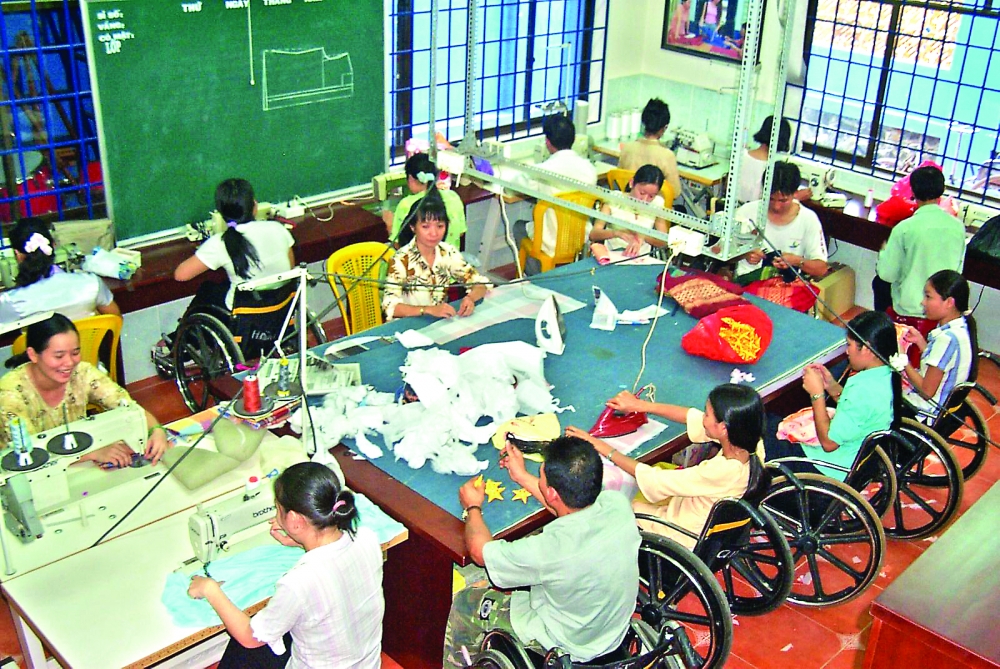The potential of social impact business in Vietnam
|
SIBs are those involved in commercial activities and at the same time committed to creating positive impacts on society and the environment. The harmonization of social, environmental and commercial objectives enables them to deal with social and environmental challenges in a sustainable manner.
Survey results show that Vietnam currently has about 22,000 SIBs accounting for four percent of the total number of companies operating in the country, concentrated in the fields of agriculture, fisheries, food, education and skill development. Some 59 percent of SIBs in Vietnam choose to harmonize social and economic objectives; 18 percent prioritize profit targets, while 34 percent focus on social objectives. Seventy percent of SIBs are profitable; 18 percent break even, while those facing losses account for only 12 percent. The study indicates higher percentage of profitable SIBs in Vietnam compared with other countries, such as the UK and Malaysia. The percentage of SIBs facing losses is also much lower compared with the percentage of all such companies nationwide (48 percent). Most SIBs are optimistic about their operations. Only one percent of SIBs are worried about declines in their revenues; seven percent expect their revenues will remain unchanged, while 92 percent are confident of revenue increases in 2018.
Vietnamese SIBs are mostly small in terms of personnel and revenue but are pioneers in promoting the diversity and inclusiveness of business activities. Almost all SIBs have female employees and three thirds employ people with disabilities. Truong Thi Nam Thang, Director of the National Economics University’s Center for Social Innovation and Entrepreneurship, head of the study team, explained that the SIB model creates social, environmental and economic values, helping promote sustainable business and enabling the government to deal with challenges facing Vietnam’s development. “This can be explained by the morality of this business model, which will help build up medium and long-term business sustainability in terms of reputation and finance,” she said.
However, the study also indicates that Vietnamese SIBs are facing various challenges, including difficult access to loans and technologies, low labor productivity and quality of human resources. To promote the development of SIBs, the study team recommended facilitating SIB access to loans and other financial resources, tightening the linkages between SIBs and other private companies; establishing a representative network for the SIB sector; and boosting training on social creativity and startups for society. “Most SIBs are small-sized and their revenue and profitability during the initial period of their operations are limited, affecting their tax payments. Therefore, reducing value added taxes for SIBs is an effective solution to encourage consumers to pay more for SIB products and services,” Truong Thi Nam Thang said.
| The top five priorities of Vietnamese SIBs include improving people’s lives; generating jobs; protecting the environment; promoting education and training; and assisting agricultural development. |
Article URL: https://ven.congthuong.vn/the-potential-of-social-impact-business-in-vietnam-35755.html
Print ArticleCopyrights of Vietnam Economic News, All rights reserved VEN.VN | VEN.ORG.VN

